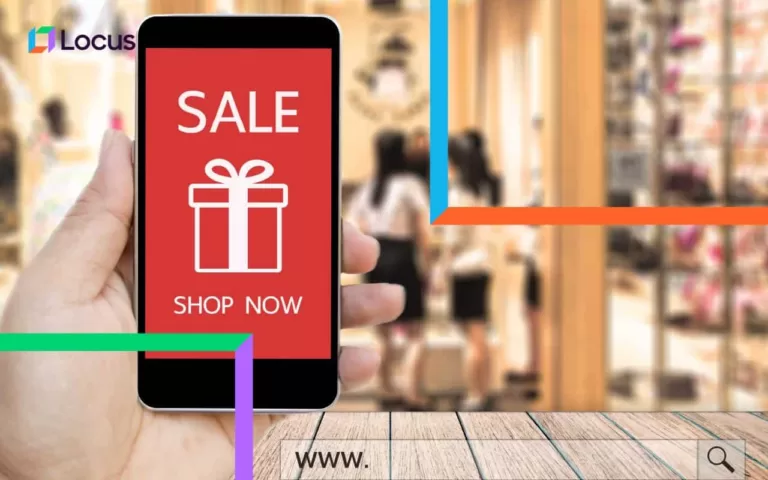Last Mile Delivery Optimization
Why Logistics Matters in the Middle East Now, More than Ever?
Aug 6, 2020
5 mins read

The Covid-19 pandemic has thrust logistics to the forefront of every industry and country and the scenario is no different in the Middle East. But the challenges and opportunities in the region are quite unique.
The pandemic has made life tougher as customer expectations have increased and logistics resources are being stretched to the maximum.
The Unique Logistics Challenges in Middle East
Address Location
Customers in the Middle East do not usually write precise addresses. Addresses are not completely fleshed out which means delivery executives waste valuable time searching for the right location. Sometimes, addresses also contain a mix of Arabic and English text making it tougher to decipher.
The address system became so critical that the governments had to step in to bring in some level of consistency. For example, the Kingdom of Saudi Arabia’s government-run postal service, Saudi Post, came up with a national address system. Also, Dubai implemented a Makani address system. A Makani number is a unique 10 digit code that can help locate a building.
But even with all these large scale initiatives, address location is still a concern for last-mile companies.
Cash-on-Delivery
Cash-on-Delivery (COD) is the major mode of transaction in the Middle East. According to a 2019 report titled ‘E-commerce in MENA-Opportunity beyond the hype’ by Bain&Company and Google says that, “Today, around 62% of MENA online shoppers prefer COD as a payment method when buying online, compared with less than 5% in the UK and France. COD is prevalent even in the UAE, where credit card penetration is at 57%, which is higher than in the UK and France.”
The heavy dependence on COD is mainly due to the lack of trust in both last-mile delivery and online payments. This also translates to higher last-minute cancellations and returns. But for the business, it is a loss, as they’ve already spent money and resources to reach the customer.
Returns Management
With increasing online ordering due to the Covid-19 pandemic, a seamless returns policy is the need of the hour to ensure a good customer experience. Right from inventory management, quicker replacements to increasing returns visibility, each step needs to be looked into.
Geographical and Regional Uniqueness:
The vastness of the countries coupled with the density of orders from certain areas makes dividing territories amongst delivery executives a tedious task. Also, for last-mile logistics to be successful in the Middle East, one needs to not just know the routes, but also understand the daily lives of people. For example, businesses in the Kingdom of Saudi Arabia are completely shut during Salat. It is therefore only practical to not plan any transactions at those times.
How can you overcome these logistics challenges in middle east?
A tech stack is a much-needed panacea for addressing these pressing challenges. A tech platform needs to help you do the following:
- Locate addresses with ease- Finding addresses is a task for last-mile executives and a geocoder that can decipher Arabic language addresses is a boon. More importantly, a geocoder can help record the latitude and longitude of a delivery destination, which is useful for repeat orders.
Locus’ proprietary geocoding engine converts the fuzziest of the addresses into precise geographical coordinates and works with Arabic language addresses too. Addresses are mapped correctly irrespective of the quality of address, leaving no room for error, thus avoiding misroutes. This will help increase the number of orders per rider, thereby reducing vehicles used, and fuel costs. - Integrate both forward and reverse logistics– With increased demand and a stretched workforce, a tech platform should ideally help you manage both deliveries and returns in one single plan. A dispatch overview will help you visualize plans on screen and tweak your plans to ensure that you meet promised SLAs. It is the go-to place for all legs of logistics.
- Enable online payment options– With the Covid-19 pandemic making social distancing an imperative, deliveries have become contactless. It is only logical that payments become contactless too. In a COD-heavy market like the Middle East, the pandemic might just be the catalyst that will push customers to try online payments. A tech platform must enable every possible means of online payments so as to give enough choice to the customer.
- Run ‘What-if’ scenarios- In this Covid-19 world, it is important for companies to run multiple ‘what-if’ scenarios to determine their readiness to respond to different on-ground scenarios. ‘What-if’ scenarios are essentially run on a digital twin, which is a digital model of the company’s on-ground supply chain, to find answers to various questions like- what if my warehouse is in location A as compared to location B, would it ease my supply chain issues; can I use seven large trucks instead of 14 minivans; is three-hour express delivery possible, etc. This scenario modeling will go a long way in determining the readiness of a business and eventually its success.
- Do territory-based route planning while considering various business constraints- In most cities, high demand is usually seen from only a few areas. It is thus important to make sure that one allocates those territories to certain expert executives who can ensure seamless deliveries. The routing should take into account Prayer timings, rider constraints, traffic restrictions, vehicle restrictions, etc, so as to come up with a plan that can actually work on the ground.
Conclusion
The Covid-19 pandemic has made it a dire necessity for companies in the last-mile delivery space in the Middle East to relook at their logistics operations so as to cater to the changing customer demands.
Locus’ last-mile delivery software saves costs, enhances efficiency, and helps manage the ever-increasing delivery expectations of customers.
Want to optimize your logistics? Schedule a Demo with Locus!

Related Tags:

Vietnamese
Tối ưu hóa lộ trình vận chuyển cho ngành công nghiệp dược phẩm: Giải quyết những thách thức trong việc giao hàng dặm cuối
Các tổ chức dược phẩm dành trung bình 6% doanh thu của họ cho các dịch vụ logistics – Tổ chức Y tế Thế giới và Hiệp hội Dược phẩm (WHO và PDA). Ngành công nghiệp dược phẩm đã thành công trong việc tạo ra các loại thuốc trị hiệu quả thông qua các nghiên […]
Read more
News
India Back on the E-commerce Sales Bandwagon
The mega E-commerce sales events will help sellers push their locked inventory and help brands in non-essential categories get back on track.
Read moreMOST POPULAR
EDITOR’S PICKS
SUBSCRIBE TO OUR NEWSLETTER
Stay up to date with the latest marketing, sales, and service tips and news


Why Logistics Matters in the Middle East Now, More than Ever?